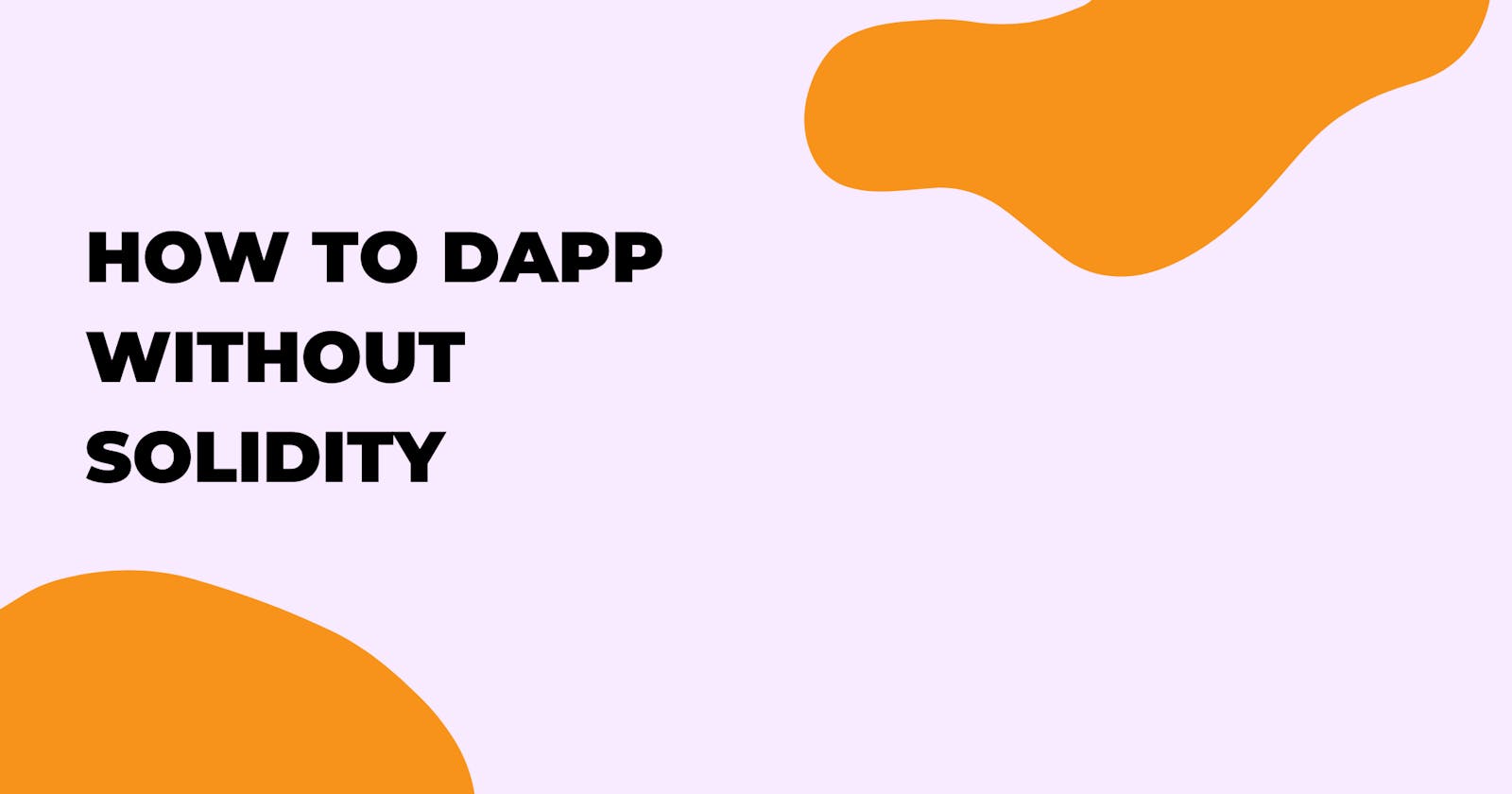Two years ago, I used to think that, to build my own crypto app I will have to learn a new language like solidity. Virtual machines blockchain like Ethereum requires smart contracts to be developed in specific languages. And there were fewer learning resources, making it hard to get started.
Today, you don't have to know anything about Solidity. You don't need to care about how a specific blockchain works to build DApps on it.
In 2021, I built and launch a crypto savings web app. The only working knowledge I had on crypto was how to buy and sell cryptocurrencies. Every other knowledge on blockchain and Web3 was acquired while building and growing the platform. In the last 6 months, we processed over $21,000 in transactions.
This post explains how to get started with blockchain development using multiple platforms that provide you SDK and APIs to build your own DApps. I explain each platform; what you can build with them; the languages your can use; and how to get started immediately.
Let's get started.
Tatum
Tatum is a full-stack blockchain service for developers to create crypto/NFT apps using web 2 languages. With Tatum, you can build a dApp version of any traditional fintech application out there. No need to learn solidity or deploy your smart contract.
Things you can do with Tatum Blockchain: You create your own ERC-20 token without deploying a smart contract. Build a DApp for anyone to Mint their NFT. Create a custodian crypto exchange like Binance; Deploy your own DEX App like Trustwallet; Build an app that let users send/recieve crypto assets.
Easy for anyone experienced in web APIs. You can build with languages like Javascript, Go, Python and several others. There is a free plan for testing purposes. Paid plan starts from $9/per month.
Want to start coding? You can check out their documentation or here is a guide that let you build your first DApp with Tatum.
Moralis
Moralis is a web3 development platform. It provides lots of web2 SDKs that will save you learning and development time. You can build and deploy high performant DApps. Authenticate your users and monitor both historical and real-time transactions. It supports up to 6 blockchains.
Things you can do with Moralis: You authenticate users with their MetaMask account. Interact with a function of a smart contract; let users send/recieve crypto assets connected to their MetaMask account.
It API can be accessed with any modern programming language. For JavaScript Devs, it has a default SDK providing all the necessary functions you need to ship quickly. SDK can be a little complicated when dealing with MetaMask.
There is a free plan for testing.
Want to start coding? you can start here or here is a tutorial that let you build a DApp in 3 minutes.
Binance Open API
Binance is the largest crypto exchange in the world by trading volume. Binance provides an API for developers to interact with its platform. It has over 300+ coins and tokens listed on its platform. You may not build a fully functional DApp with Binance, but you can learn a lot about the technical side of building crypto trading applications.
Things you can do with Binance API: Build a lite custodian exchange; a trading bot; a crypto savings and lending app, or a bitcoin broker that executes trades for clients.
There is a Javascript and PHP SDK on Github for easy development. You will need a verified Binance account to use the API.
There is a testnet server available for development. You can start by visiting the documentation or play with the Postman collections.
Solana
Solana is a high-performance blockchain. Devs can create crypto apps that are scalable and robust. Unlike Ethereum, developers can build super crypto apps on the Solana Blockchain using Rust or C. You don't need to learn a new language if you are already familiar with Rust. There is also a Javascript SDK built on top of the Solana JSON RPC API.
Things you can build on Solana: Launch your own Solana based token; create an app to mint, hold, and transfer NFTs. A non-custodian wallet like Phantom; a lending and yield platform; a crypto remittance app with low fees; or a decentralized version of Twitter.
You can start deploying Solana apps by visiting the documentation.
OpenNode
OpenNode is a Bitcoin payment processor. You can integrate OpenNode using any language of your choice. With OpenNode you can build a wallet for users to send and recieve bitcoin. A major drawback of Bitcoin L1 is fees and speed of transaction. The Lightning Network is designed to make bitcoin transactions as fast and cheap as possible. OpenNode has default support for Bitcoin Lightning.
Things you can build on OpenNode: Accept Bitcoin Payments on your website or App; Bitcoin remittance app. Bitcoin POS. Virtually anything you could build with bitcoin payments.
With clean and easy to read documentation, you can start building apps that accept bitcoin payments. It provides libraries for PHP and NodeJS on Github.
CoinMarketCap
CoinMarketCap is a widely known crypto data site. It has nearly all the information available in the blockchain space. This platform doesn't let you build applications on a specific blockchain, but it provides you with all the data you need via its API. And you can integrate this API with any language of your choice. It has a free plan which you can use for testing purposes or build smaller applications.
Conclusion
These days, it is great to experience how easy we can ship blockchain apps with tools and services like Tatum or Moralis. Depending on what you want to build, you can choose any of the platforms.
It is easier to transition into web3 by building apps with languages you are already familiar with. This gives you practical knowledge. You will be much more encouraged to dive deeper into blockchain development than waiting to get very good at Solidity or deploying smart contracts.
